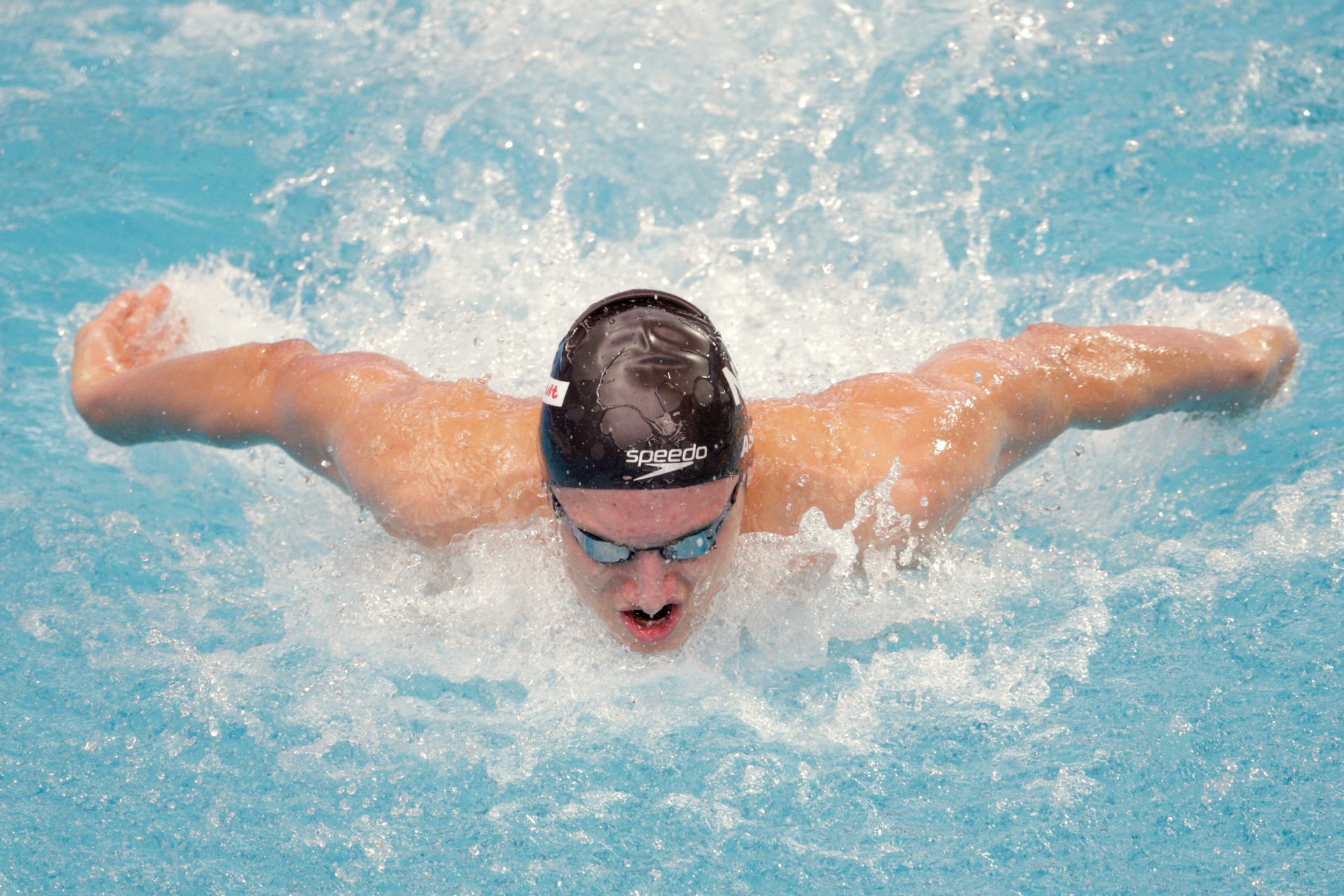
When medley specialist Bradlee Ashby is in the full flight of butterfly, he’s already thinking about getting into the back stroke.
Such is the mental focus and strength required by an individual medley swimmer – always thinking ahead to the next stroke.
[embed width="480" height="270" class="leftAlone" thumbnail="https://i.ytimg.com/vi/KwuJxFCXEpQ/hqdefault.jpg?r=64349"]http://www.youtube.com/watch?v=KwuJxFCXEpQ[/embed]
“Medleys can be more difficult to race because you can’t get into a rhythm, the strokes keep changing,” says Ashby, who will make his Olympic debut in Rio. “You need to be ‘on point’ and change gear into a new stroke really quickly, so you have to be thinking ahead to your next stroke,” he says.
Ashby feels it’s something he does well. But it’s a skill that’s a lot easier to master when he’s well-rested.
He’s well aware of his strengths – butterfly and backstroke – and his turns and underwater distance. His weakness, he admits, is breaststroke, and so he pours his effort into strengthening that stroke, know how important it is to have a balance of strengths across the disciplines.
Each stroke has a different focus: in butterfly he strives to get his hips up through the water, and backstroke requires a strong core and a good stroke-rate. He needs to be as efficient as possible in breaststroke, maximising power, while the “bring it home” final discipline of freestyle demands mental strength.
“The balance between each four strokes is where you can make or break it in the race,” he says.
To build his physical strength, Ashby does a lot of work in the gym – focusing generally on all areas of the body. But he often gives extra concentration to working on his “lats” (the latissimus dorsi muscles) which give power to the areas of his body that catch the water.
He often varies speed and weights to achieve different outcomes - larger weights and slower reps will result in more raw power.
With mental strength also crucial, Ashby works with a sport psychologist. As well as visualisation, he works on trying to take things “one at a time”. Rather than letting things overwhelm him, he focuses on those “next 10 metres.”
Competition is what Ashby thrives on – racing with the world’s top swimmers, getting the best out of himself, and showing people what he can do. “To be heading into the Olympics is my lifelong dream. It gives me a sense of purpose and makes me want to swim better,” he says.
Knowing he’s inspiring other New Zealanders has come as a surprise. “I’d love to get more people into swimming and if I can do that, it’s great privilege.”